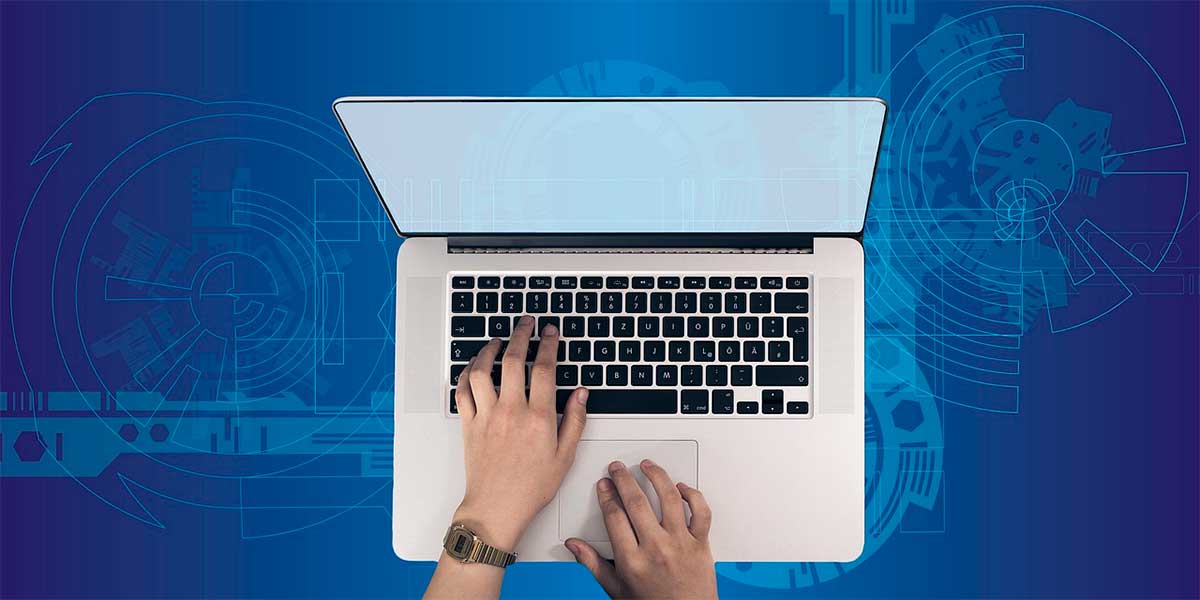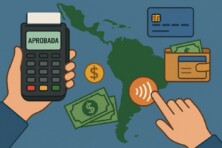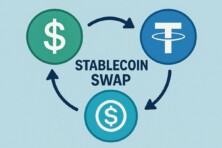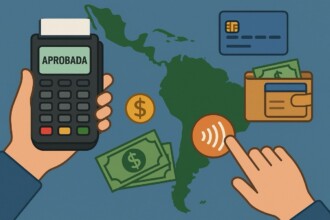Blockchain is one of the leading emerging technology domains in the current IT industry. According to statistics, the global market for blockchain technology is expected to increase by about $20 billion by 2025. Blockchain, on the other hand, is a technology that is revolutionizing how the digital world operates more securely and effectively. It is much bigger than Bitcoin. Numerous IT giants, including Samsung, IBM, Capgemini, and others, provide amazing career opportunities for blockchain professionals. If you want to develop a meaningful and prosperous career, you should consider blockchain development training and becoming a blockchain developer.

Source: Pixabay.com
The Importance of a Blockchain Developer
A software developer specializing in blockchain technology is known as a blockchain developer. Software and system developers plan, create and test their work. The two main categories of blockchain developers are Core blockchain developers and Blockchain software developers.
The process of building and upholding a blockchain platform is known as blockchain development. Blockchain developers are very important as blockchain development entails building the infrastructure necessary to develop and administer blockchain-based products and services, including cryptocurrencies, smart contracts, and distributed software. It also entails creating the technologies and tools required to support the platform. A program or platform that utilizes a blockchain’s features and advantages, such as security, transparency, and dependability, is known as a blockchain application.
The process of creating a blockchain is difficult and requires a thorough knowledge of the underlying technology. Additionally, a steadfast dedication to security and scalability is needed. Being a blockchain developer is a significant task that needs many resources and tremendous knowledge.
Blockchain Developer Job Description
Companies looking to hire blockchain developers frequently seek experts who can create, implement, and distribute secure blockchain-based applications. Blockchain developers must have the ability to analyze the organization’s needs and, in accordance, customize or use original blockchain technologies to deliver highly optimized blockchain solutions.
A candidate looking for the blockchain developer position must be knowledgeable of the developer tools and programming languages needed for blockchain development. In addition, the individual should be well-versed in cryptography and have a firm understanding of blockchain technologies. Based on their experience level, the following are the job descriptions of a Blockchain developer.
Senior Blockchain Developer
- In charge of blockchain technology development, design, and research
- Work together with management to identify the needs for blockchain
- Deliver highly optimized solutions using either the presently available technologies or creative means
Intermediate-Level Blockchain Developer
- Developing and delivering blockchain solutions in collaboration with the team
- Writing test-driven application source code and implementing characteristics and interfaces with already-existing programming languages and developer tools
- Utilize various cryptographic methods to improve and secure blockchain applications
Junior Blockchain Developer
- Upkeeping of the server-side and client-side applications
- Putting continuous integration and testing into practice for the application
These job descriptions and roles may differ slightly depending on the company individuals are applying to, particularly for startups where the line between roles is often blurry. Some of these positions can be swapped out, so a junior blockchain developer may be expected to take on the responsibilities of a senior blockchain developer and vice versa.
Blockchain Developer Roles and Responsibilities
The key responsibilities of a blockchain developer include:
- Developing consensus procedures, establishing a network security pattern and developing the blockchain technology protocol
- Creating and directing the network topology
- Developing, testing, and creating application functionalities for blockchain systems using a wide range of programming languages
- Putting in place security measures to stop different cyber-crimes and using encryption to fend off cybercriminals as well as other internet threats
- Launching innovative technology to enhance the security of current blockchain networks and informing team members of new upgrades
- Designing the blockchain protocols
- Create a network architecture that can be used for data centralization or decentralization.
- Blockchain protocol-compliant backend development
- Creating front-end designs that meet client needs
- Creating and keeping track of any smart contracts
A blockchain developer creates software for the blockchain protocol architecture. Their regular tasks include developing and enhancing algorithms that adhere to and use the blockchain protocol, which was created on top of the common Internet Protocol (IP) to serve as the internet for devices powered by blockchain technology.
The roles are generally divided into two types because the tasks a developer must perform in a given role occasionally vary.
Core Blockchain Developer
A core blockchain developer works with blockchain at its most basic level. They are responsible for choosing the blockchain architecture’s consensus mechanism and system protocol.
Blockchain Software Developers
Blockchain software developers interact highly with the blockchain. They are responsible for using the algorithms created by the core blockchain developers and incorporating them into their separate applications for developing dApps.
Blockchain Developer Salary in 2023
Due to rising demand and the transition to Web3 technology, blockchain developers are currently among the highest-paid professionals in the world. According to a survey, the salary for a blockchain developer in India is between five to thirty lakh rupees, with some senior blockchain developers acquiring up to 50 lakh rupees annually.
You can get a general idea of how much money you can expect to make in some of the most well-known cities and job locations all over the globe by comparing the salaries of blockchain developers by location in the following list.
- Hyderabad: Average salary ₹6.35 LPA – 30 LPA
- Gurugram: Average salary ₹5.85 LPA – 30 LPA
- Bengaluru: Average salary ₹7.50 LPA – 30 LPA
- Pune: Average salary ₹5.00 LPA – 30 LPA
Now, just like in any other profession, a blockchain developer’s experience and level of expertise are key factors in determining their pay. An experienced blockchain developer typically commands a higher salary because of the greater value they add to the business.
The pay scales for various experience levels are shown in the list below.
- Junior Blockchain Developer: Average salary $72k/₹53.61 LPA
- Intermediate Blockchain Developer: Average salary $72k/₹53.61 LPA
- Senior Blockchain Developer: Average salary $135k/₹1.01 Cr
The Future of Blockchain Developer Jobs
The way we conduct business could be disrupted and changed by blockchain technology. The adaptable technology provides advantages like increased operational effectiveness and lower costs. As a result, blockchain has a wide range of applications in various sectors, including identity and access management, financial sectors, and supply chain management. Blockchain developers are in high demand as professionals in the programming industry. This new technology’s flexibility enables developers to apply their knowledge and expertise to various sectors. In 2021, the annual growth rate for blockchain job postings on Glassdoor alone was about 300%. As more companies adopt this new tech and move from proof of concept to production, the popularity of blockchain developers continuously rises. As a result, salary rises are driven by the rising demand for new experts and competition for top talent.
Due to its accountability and improved security, decentralized ledger technology is embraced by businesses across numerous industries. Gartner forecasts that the business value of blockchain technology will exceed $3 trillion by 2030 due to its rapid adoption. By 2030, this technology will create more than 40 million jobs worldwide. Therefore, it should be no surprise that leading corporations would look for in-house blockchain developers to grow their operations.
Blockchain Developer Resume Template
The job of blockchain developer is a recent one. The popularity of this field has only increased recently. Additionally, writing a resume for this field can be challenging due to its novelty. However, if the effectiveness of your resume is mediocre, you might have a very difficult time finding good work opportunities. Your expertise, experience, and value must be clear in your resume.
Length
A page or two should make up your resume. Try to be as brief and direct as possible. It could appear short for a blockchain developer resume, but things can get very confusing if your resume is any longer than that.
Style
It shouldn’t be too fancy on your resume. Some people overdo the elegant look of their resumes to make them stand out. Recruiters seek skilled and competent candidates for technical positions like blockchain developers. As a result, you should focus on simplicity and clarity in your resume.
Proofread
Every time you revise your resume, proofread it. It’s significant because a mistake in a crucial document like this demonstrates negligence and unprofessional conduct. Recruiters will not take your resume seriously if it contains grammatical errors.
Uniqueness
Some people commit the mistake of sending the very same resume everywhere. Don’t commit that mistake. Instead, carefully read the job description to determine what the employer seeks. Then, adjust how you write your resume. The likelihood that they will choose your resume will increase one hundredfold.
Sections to Include in a Blockchain Developer Resume
After reviewing the fundamentals, discuss each important component of a blockchain developer’s resume. As we previously discussed, these resumes stand out from the competition due to the particulars of the position. Because of this, you’ll need to write your resume for this position differently.
Objective or Summary
The most important section of your CV, after the header, is your career objective. A professional summary is comparable but differs slightly. While experienced professionals enter summaries, newer employees enter a career objective. In both situations, make sure to keep it brief and pertinent. No more than two to three sentences, or 100 words, should be used.
Experience
The experience section is where you mention your prior accomplishments and collaborators. Tell the viewers how you assisted your previous employers in resolving their issues in this section. You can create a section to discuss your blockchain coursework and experience.
Skills
The skills section of your resume comes right behind the summary as the most crucial section. The company would want you to be knowledgeable about programming languages, blockchain tools, and applications because it is a very technical field. Mention your technical expertise, the programming languages you are familiar with, the tools you employ, and the blockchain applications you have used. Maintain the skills’ relevancy while increasing their number.
Achievements
With this portion of your resume, you can have a little fun. This portion is for any acknowledgment or awards you’ve previously received. You can also add any difficult tasks you’ve completed here. Just ensure that it’s a crucial piece of information.
How to Land a Blockchain Developer Job?
The need for Blockchain developers is at an all-time high, but there aren’t enough qualified people to fill the positions. Because blockchain is a rapidly developing field, there is much room for innovation and expansion. There isn’t a better time to develop your skills and become a Blockchain developer than now because the technology is still in its preliminary stages and has much room for innovation.
One of the main reasons there aren’t many qualified professionals to fill the opening is the technology’s steep learning curve and the extensive list of prerequisites needed for a job as a Blockchain developer. Here are some tips that might help you
- One must begin by learning the fundamentals of programming, similar to any other area of computer science. This includes learning a computer language like C, Python, Java, etc., accompanied by data structures and algorithms to enhance your problem-solving abilities and logical and programming foundations.
- Covering the fundamental ideas in blockchain, such as cryptography, and blockchain architecture, should be the next step.
- After these are covered, learning to use some fundamental developer tools and programming languages for Blockchain programming is the next step. The ability to write smart contracts, create and improve consensus algorithms, etc., is part of this. As a Blockchain developer, this is when you start getting your hands dirty.
- You advance to the next stage of Blockchain programming, developing a decentralized application, once you are an expert. Here, you can choose between web development to reach a web-based user base or developing mobile applications to reach mobile users. With a large selection of tools and frameworks that can be used to enforce a range of features, this can be considered a completely separate
After checking off these requirements, you are qualified to work as a blockchain developer.
Conclusion
The need for blockchain developers is expanding rapidly. One of the main reasons those in the tech industry are quickly adapting their skill set to incorporate blockchain development is that a sought-after, high-skilled job enables professionals to acquire a high-paying salary.
With the help of top blockchain development training courses and certifications, take the lead in the field and master everything that will help you succeed, from comprehending the technology underlying cryptocurrencies like Bitcoin to learning how to use cryptography and smart contracts.
FAQs
How long does it take to become a blockchain developer?
The length of blockchain developer training depends on the course and the desired skills. Depending on the program, where it is taught, whether you pursue it full-time or part-time, and the level of training intensity, it can take anywhere from three months to three years.
What are the top 5 blockchains?
Ethereum, Hyperledger, IBM Blockchain Platform, Hyperledger Fabric, and R3 Corda are currently the top 5 Blockchain platforms.
Which language is used for blockchain?
Since blockchain technology has no specific language, blockchain developers should possess expertise in languages like C, Java, and Python.
Does Blockchain require coding?
Yes, coding is necessary for blockchain. For blockchain developers to understand the basics of blockchain technology, they must be proficient in programming languages like C, Java, and Python.
Which are the top companies hiring blockchain developers?
According to Indeed, Deloitte, IBM, KPMG, EY, Accenture, Cisco, JP Morgan, Chase, and Microsoft were among the top 10 companies with the most job postings for positions related to bitcoin, cryptocurrencies, and blockchains.









